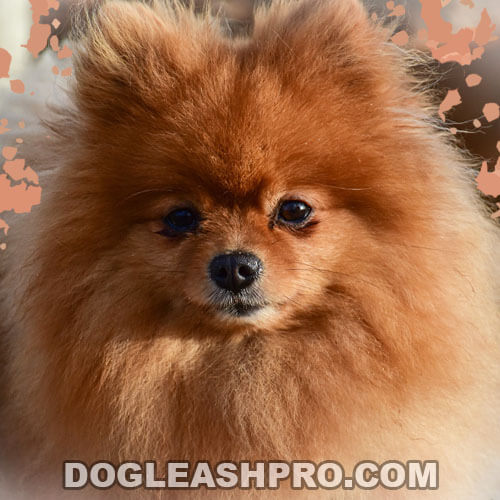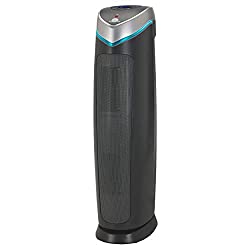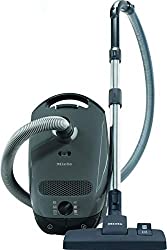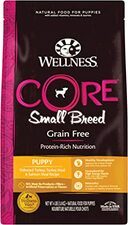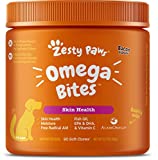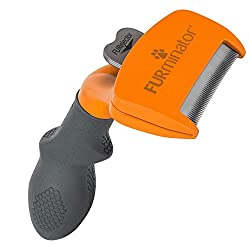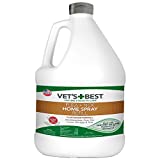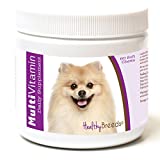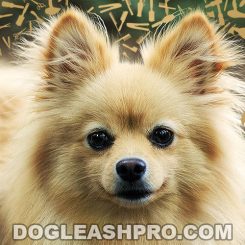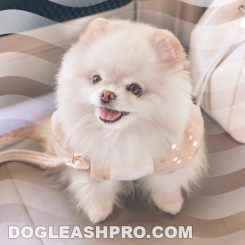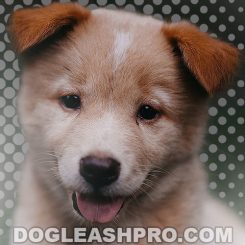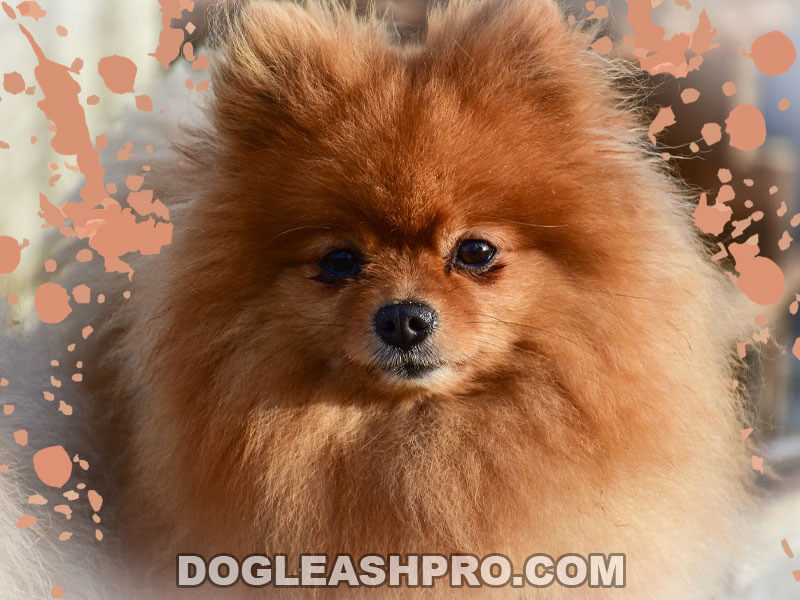
Are Pomeranians Hypoallergenic? No, Pomeranians are not hypoallergenic. Even though they shed little compared to other dog breeds, their dander, saliva, and hair can trigger allergies in people that are sensitive to these allergens. However, there are steps you can take to prevent getting triggered such as by brushing them daily, vacuuming your home regularly, and using an air purifier.
Pomeranians are a breed of dogs that originate from the Pomerania region located in northern Poland and Germany. The breed is very popular in the U.S. because these toy-sized dogs come in brilliantly different shades and colors and are great to befriend.
However, if you’re someone who suffers from allergies, you might want to know whether Pomeranians are hypoallergenic and Do Pomeranians Shed before you get one. Although they aren’t hypoallergenic, there are many tips we’ll share with you below on how to reduce dog allergy around your home. Let’s get started!
Table of Contents
Are Pomeranians Hypoallergenic? Why not?
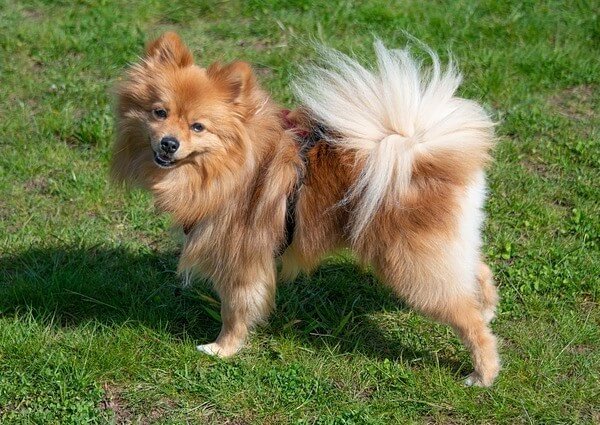
No, Pomeranians are not hypoallergenic. In fact, there are no dogs that are 100% hypoallergenic. Even breeds that are completely hairless are not considered hypoallergenic.
However, some dog breeds tend to be more hypoallergenic than others depending on the texture of their hair and the amount they shed.
When it comes to the Pomeranians, they are not hypoallergenic because they shed a fair amount of their fur which also includes dander. This is because they have a double coat, with a soft undercoat and an outer longer coat.
They shed heavily twice a year (during the spring and autumn) to cope with the changing seasons. Additionally, there is also some shedding throughout the year which can attribute to your pet allergies.
Pomeranian history
Pomeranians are the 23rd most popular breed in the U.S. Because of their pointed muzzles, they are also described as Spitz or Wolfspitz due to their resemblance with wolves. They were first bred in Pomerania, a region located along the Baltic Sea coastline in northern Poland and Germany.
However, Pomeranians became famous only after Great Britain’s Queen Victoria took a liking to these dogs. She is known to have bred these dogs to the size that they come in nowadays.
There was also a Pomeranian club formed in England even before Pomeranian was registered as a breed with American Kennel Club (AKC) in 1898.
What does Hypoallergenic mean?
Hypoallergenic means anything that doesn’t cause an allergic reaction. This term was first introduced by the cosmetic industry to denote products that were less likely to trigger allergic reactions than other products.
However, everyone’s immune system is different and there is no guarantee that they wouldn’t react even to a hypoallergenic dog or product.
What are hypoallergenic dogs?
According to the American Kennel Club (AKC), around 10-20 percent of Americans are allergic to dogs. Many believe that a dog with little dander or saliva will not trigger allergies or asthma. But there’s no such thing as a “hypoallergenic” dog.
The term “hypoallergenic” is only used to describe a breed of dog that makes a better pet for someone who has allergies. These dogs typically have curly fur, sheds very little and their fur is less oily than most other dogs, which makes them less likely to trigger dog allergies in people.
What are dog allergies? How do you know if you have dog allergies?
Allergic reactions to pet hair and dander are caused by the body’s immune system. The immune system is the body’s defense against all germs and foreign invaders, including pollen and dust.
When something triggers an allergic reaction, the immune system releases a chemical called histamines which enters the bloodstream and produce allergic symptoms such as sneezing, coughing, itchy eyes, and in the case of dog allergies, rashes.
Allergic symptoms start when your body’s immune system is exposed to something that it believes to be harmful. If you suffer from dog allergies, you probably already know what symptoms you’re expected to experience.
However, if you’ve never had a canine companion before, you might not know what symptoms you may have. If you currently have a Pomeranian and are experiencing some uncomfortable symptoms like the ones mentioned below, then you may have a dog allergy:
- Runny nose.
- Sneezing.
- Coughing.
- Chest tightness.
- Facial pain.
- Shortness of breath or wheezing.
- Skin rash or hives.
- Red, itchy, or watery eyes.
Can you build up an immunity to dog allergies?
Yes, it is possible to build up an immunity to dog allergies. This process is known as immunotherapy. You would have to get allergy shots so you can develop immunity against the allergens that are causing allergic reactions. With time, you must increase the dose of the allergy shots.
This is a common process for anyone who love dogs and want to live with them without having to reach for the tissue every time they are taken over by a fit of sneezing.
You must know though that immunotherapy does not have immediate effects on your immune system. It is a long-term solution in which your body builds tolerance towards allergens.
We recommend that you speak with your doctor if you’re looking to build up an immunity to dog allergies. Every one is different so what may work for others may not work for you.
What makes a dog hypoallergenic?
Although no dog is 100% hypoallergenic, some dogs are better suited for people sensitive to dog hair and dander. These dogs that are considered hypoallergenic don’t have as many allergens or shed as much as other dogs.
Examples of these hypoallergenic dog breeds include the following:
- Irish Water Spaniels.
- Kerry Blue Terriers.
- Poodles.
- Portuguese Water Dogs.
- Bichon Frise.
These dogs shed very little, have a curly coat that do not shed much dander, which is why they are best suited for people with dog allergies.
Is the hairless Pomeranian hypoallergenic?
Not really. A hairless or bald Pomeranian is very rare. If a Pomeranian doesn’t have any hair naturally, it is probably due to black skin disease or alopecia, in which the dog loses his coat and develops black pigmentation in the bald areas.
Those that are extremely sensitive to pet allergy may still be allergic to a bald Pomeranian because he may still shed dander and this can trigger an allergic reaction.
This is why shaving your Pomeranian to reduce the risk of having an allergic reaction is not a smart idea. This is because Pomeranian relies on their coat to keep them warm in the winter and regulate their body temperature throughout the different seasons.
Stripping them of their natural coat would disrupt the way they regulate their body temperature and cause them a lot of discomfort.
Are Pomeranians allergy friendly?
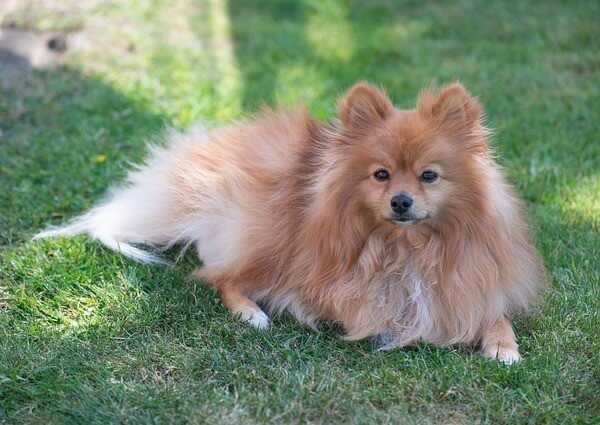
No, Pomeranians are not allergy-friendly. If you are planning on getting a Pomeranian, it would be best to spend some time with a few Pomeranians to see if they trigger any pet allergies and find out how severe it is.
If the Pomeranian pups do not trigger your allergies, then it will be fine bringing one home.
If you know you have pet allergy and would still like to bring home a Pomeranian, there are steps you can take to lower the risk of an allergic reaction. These include brushing your canine friends every day to get rid of excess loose hair and pet dander that could be a potential health risk for you.
You can also vacuum your house frequently to minimize the amount of fur or dander on your furniture, upholstery, bedding, carpet, and hardwood floors.
Finally, a good air purifier will rid the air of any dust, dust mites, pollen, dander, fur, mold, and any other remaining allergens.
Are Pomeranians bad for allergies?
Yes, Pomeranians are not the best dog for those with severe pet allergies. While some may only suffer from mild symptoms, others can get a full-blown allergic reaction.
For this reason, it is best to either spend time with the Pomeranian first before getting one or opt for another dog breed that won’t aggravate your symptoms.
If we compare the Pomeranians with other dogs, it’s fair to say that Pomeranians don’t shed as much as other dogs like Corgis. They also produce low levels of dander which can be tolerated by those who don’t get triggered by allergens easily.
Do Pomeranians have a lot of dander?
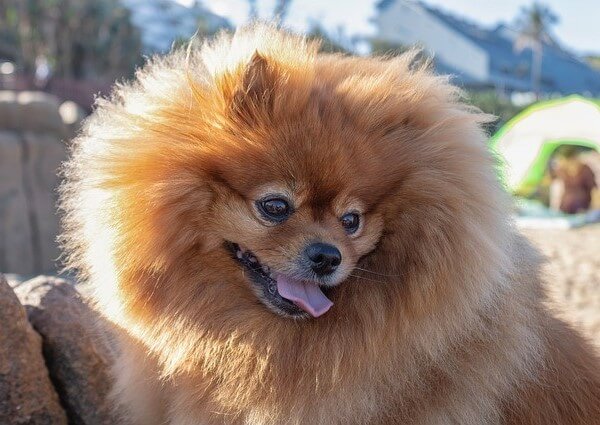
Yes, Pomeranians shed a lot of fur and dander. This is because they have a thick double coat which is adorable yet unbearable for people with dog allergies.
A Pomeranian will blows his coat twice a year, once in spring and then in autumn.
During the spring, he will shed his coat to stay cool, while in autumn he will shed his coat to grow a thicker undercoat to stay warm for the upcoming cold season.
Other dogs that shed a lot of fur and dander include Malamute and the Siberian Husky. When compared to these dog breeds, the Pomeranian doesn’t shed as much.
Different types of Canine Proteins
There are different proteins in dogs’ fur, urine, dander, and saliva that trigger allergic reactions in people who are sensitive to them.
These proteins or allergens tend to transfer from your dog’s fur to you or your bedding, furniture, carpets, and clothing. Some of the common canine proteins responsible for your allergies include the following:
- Can f1: This is a salivary lipocalin protein produced by your dog’s tongue epithelial tissue and also present in dog dander and hair. If you have a canine companion, you have Can f1 protein and allergen in your home as well. According to Thermofisher Allergy & Autoimmune Disease, around 50% of people allergic to dogs have shown reactivity to this specific protein.
- Can f2: This protein is also produced by your dog’s tongue and parotid gland. Around 25% of people who are allergic to dogs have shown reactivity to both Can f1 and Can f2 proteins.
- Can f3: This is a serum albumin protein and allergen found in dog hair, saliva, dander, and epithelia. It is also a common allergen in house dust. People who are sensitive to Can f3 have an increased risk of allergic rhinitis and asthma.
- Can f5: This allergen is present in the prostate of male dogs and is recognized as a major allergen. About 70% of people allergic to dogs are sensitive to this specific protein.
Do Pomeranians cause allergies to humans?
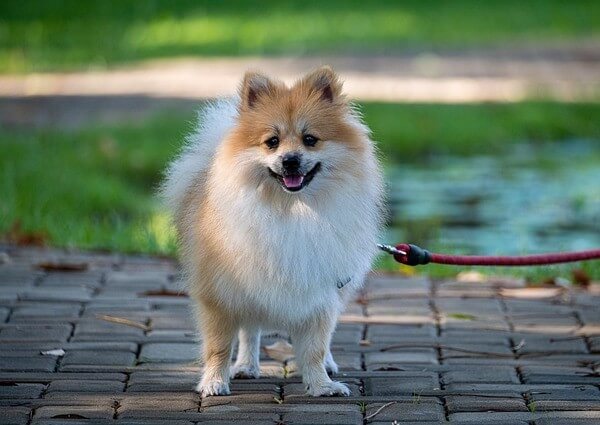
Yes, Pomeranians cause allergies to humans. Cuddling with your Pomeranian dog can result in misery when you suffer from allergic symptoms later.
The main culprit that causes an allergic reaction in humans is the dog’s saliva. This contains a protein that is transferred to the dog’s fur when he licks himself. When you cuddle with or touch your Pom, that canine protein in your Pomeranian’s fur and saliva will come into contact with you.
Some of the signs and symptoms you may experience after spending time with your furry friends include the following:
- Runny nose.
- Sneezing.
- Wheezing.
- Congestion.
- Rashes.
- Shortness of breath.
- Watery, red eyes.
Are Pomeranians OK for people with allergies?
No, Pomeranians are not okay for people with allergies, especially those who are very sensitive to pet dander, hair, and saliva. That’s because Pomeranians blow their coat twice a year during which you’ll see a lot of hair in your home which can trigger your allergies.
Their saliva is also the main reason people experience allergic symptoms like runny nose and shortness of breath.
Can you be allergic to Pomeranians?
Yes, if you just got a Pomeranian and are experiencing symptoms like congestion, watery eyes, wheezing, coughing, runny nose, sore throat, or flu, then you may be allergic to Pomeranians.
If you’re not sure whether you are allergic to Pomeranians or not, we highly recommend that you get a preliminary diagnosis first to find out in order to save yourself the trouble. This can also help you decide which dog is best for you.
The preliminary diagnosis include a simple skin test that an allergist performs to check whether or not you have dog allergies. The allergist uses a hypodermic needle with dog dander to prick your skin. If you are allergic to the dander, your skin will redden and swell up.
Some people prefer a blood test rather than a skin test as it is more comfortable and confirms if you have a higher level of antibodies as a result of the allergen.
So, Are Pomeranian Hypoallergenic?
As we can see, Pomeranians are not hypoallergenic. They are moderate shedders and produce a significant amount of dander and saliva that can trigger allergic reactions in people who have mild to severe dog allergies.
Are Pomeranian puppies Hypoallergenic?
No, Pomeranian puppies are not hypoallergenic either. Although they have a single coat of soft, short fur, it is replaced by adult fur early on in their lives.
In fact, Pomeranian puppies begin to shed off their puppy coat at four to six months of age. They shed at such a fast rate that their coat might look patchy in some places for a while before the adult double coat grows in.
At 10 months of age, the adult fur begins to fill in the uneven patches.
Similar to adult Pomeranians, the Pomeranian puppies also produce enough dander and saliva that can trigger allergic reactions in people.
Can you build up an immunity to dog allergies?
Yes, it is possible to build up an immunity to dog allergies. You can do that by getting allergy shots regularly to defend yourself against allergens that dogs carry.
Additionally, you can also follow several steps to ensure your home is a place that doesn’t carry around a lot of allergens. Below are 15 tips that can help you reduce dog allergies around your home.
15 Tips to reduce dog allergy around your home
1. Invest in an air purifier with HEPA filter
Air purifiers with high-efficiency particulate air (HEPA) filters are high-quality filters that are popular for more than 80 years. They filter out dust particles, pollen, pet dander, odors, and any other bad particles floating in the air that can trigger your allergies.
2. Vacuum frequently with a powerful HEPA filter vacuum cleaner
Pomeranians are moderate shedders so you’ll find their hair on your sofa, furniture, carpets, hardwood floors, and anywhere where they like to sleep or relax.
To get rid of the fur and dander efficiency, you’ll need a powerful vacuum cleaner with HEPA filter such as the Miele vacuum cleaner. We recommend this one because it does a great job at removing dog hair, dander, and dust particles and leave your furniture and carpets free from any allergens.
3. Brush your Pomeranian daily
It’s best to brush your Pomeranians every day or at least twice a week depending on how long their fur is.
For long-haired Pomeranians, regular brushing is a must to get rid of any mats and tangles. You can use a slicker brush which will reach into the inner coat easily and get rid of matting, dirt, and debris. Brushing them will also circulate their blood and help distribute the natural oils throughout their skin and coat.
During the spring and autumn, you can expect your Pomeranian to start shedding heavily. During these heavy shedding seasons, be sure to brush them daily with a FURminator de-shedding tool to remove the tangles and matting and tons of loose hair.
4. Use the right tools
Using the right tools is essential. It’s best to invest in tools like the slicker brushes, grooming gloves, bristle brushes, or rakes. All of this will help to get rid of your Pomeranian’s excess or loose hair.
A slicker brush is great at reaching your dog’s undercoat to remove any excess hair from there. Many dog owners love the slicker brush because it is slightly bent and the metal bristles don’t have a lot of spaces between them which makes it easier to not only remove hair but also any dirt or debris from the double coat.
You can also use other tools such as a de-shedding tool that is easy to hold and comb.
5. Buy plenty of lint rollers
A lint roller is a tool that has a long handle with a roll of adhesive tape that can remove fur, dander, and dirt from any surface, including your clothes.
It is a good tool to use for hard-to-reach places and is also quite inexpensive. So, you can stock up on a few packs of lint rollers to use whenever you want to clean up.
6. Bathe your Pomeranian, but not too often!
When it comes to bathing your Pomeranian, once a month should be fine. In between bathing sessions, you can use dog grooming wipes, dry shampoo, or a wet towel to clean their paws, face, skin, and coat.
We recommend that you don’t bathe them too often because this can lead to a lot of shedding. Additionally, their skin and fur can lose the natural oils which are essential for healthy skin and fur.
These oils also protect your canine friends during the changing seasons.
When you do bathe your Pom, be sure to use the right dog shampoo. Let’s discuss this in more detail next.
7. Use the right dog shampoo
The right shampoo matters. When choosing a shampoo for your Pomeranian, make sure it is a dog shampoo that contains natural ingredients like aloe vera, oatmeal, and coconut oil.
This is because these ingredients are great for keeping your K9 friend’s skin and coat healthy and nourished while also preventing inflammation and other fungal or bacterial infections.
Make sure to never use human shampoos because they contain a lot of chemicals that are harsh for your furry friend’s skin and coat.
8. Wash your clothes, beddings, and covers regularly
Although vacuuming regularly does get rid of dog hair, there are still many allergens left on your clothes, bedding, and covers, such as dander and pet saliva.
Therefore, doing laundry regularly helps to remove these allergens and keeps them from triggering your allergies.
9. Be selective with the type of flooring for your home
Carpeted floors are harder to clean and traps a lot of dander and hair. It is better to switch to wooden flooring or other non-carpet floorings like tile or linoleum flooring to cut down on the number of allergens in your house. Wooden flooring is also easier to clean.
10. Train your Pomeranian to stay away from your bed and furniture
The best thing you can do to prevent coming into contact with a lot of pet dander, saliva, and hair is to restrict your Pomeranian from entering your bedroom and lying on your bed or coming into contact with your furniture.
Try to change your clothes before stepping into your bedroom as pet dander is sticky and can stick to your bedding and covers. You can also use a spray allergy defender to eliminate any allergens in your bedroom.
11. Nutritious and high-quality dog food is a must
Buying high-quality dog food for your furry family member is a must. The dog food should contain protein and other essential vitamins, minerals, and nutrients.
It’s best to avoid food that contains preservatives or artificial food coloring.
An ideal diet for your Pomeranian should include healthy fats, lean proteins, vitamins, minerals, complex carbohydrates, and omega-3 fatty acids. Some foods that are best for your dogs include lamb, chicken, fish, sweet potatoes, brown rice, blueberries, and apples.
12. Taking the right supplements for healthy skin and coat
Along with the right doggy food, you should also get some dietary supplements that can fulfill any gaps in your Pomeranian’s nutritional needs. These supplements should contain fatty acids, like omega-3 and omega-6 fatty acids, vitamin E for a healthy coat and skin, and probiotics for a healthy immune system.
13. Exercise, exercise, exercise!
Exercise is a great way to control your Pomeranian’s shedding, as it stimulates blood circulation and allows natural oils to distribute themselves evenly throughout the dog’s coat. This keeps the coat shiny, strong, and healthy.
Exercise also keeps stress at bay which is a contributing factor in excessive shedding.
Furthermore, exercising regularly keeps your Pomeranian’s immune system strong which prevents skin infections and other illnesses that can befall it.
To ensure that your K9 friends get enough exercise every day, you’ll want to take them out for a walk or play fetch with them for at least 30 minutes every day.
When walking your Pom, be sure to use a retractable dog leash that will give you full control while still allowing him the space to explore and walk.
14. Bring your Pomeranian for his regular vet check-up
Taking your Pomeranian to a vet regularly ensures that he is free from any underlying health issues and doesn’t carry any parasites or allergens that can cause excessive shedding.
RECOMMENDED: Engorged Tick Fell Off Dog: Here’s What To Do!
15. Visit your allergist
Talk to your allergist and get his recommendation on how you can protect yourself from allergens apart from the tips above. Your allergist can also confirm whether you’re allergic to dogs and if you are allergic to something else as well.
Pomeranian grooming requirements
It is essential to groom your canine friends to keep their coat healthy. Grooming also helps prevent any health issues since it is usually during grooming sessions when pet owners find unusual lumps or tick bites.
When it comes to grooming your Pom, make sure to have a regular grooming routine and always use the proper tools.
Brushing
Pomeranians require regular brushing to prevent matting and to maintain their pom-pom appearance. Throughout the year, you’ll want to brush your furry companions at least three times a week. During the heavy shedding seasons, you can brush them every day.
Remember to use a slicker brush and a de-shedding tool, we’ve mentioned above, to help you brush their coat properly.
Apart from brushing, you should also clean your Pomeranian’s eyes daily using wipes to prevent any buildup and tear stains in the corners of his eyes. Also, wipe his rear end after he pees or poops.
CHECK OUT: How To Soften Dog Eye Boogers?
Teeth brushing
Pomeranians’ teeth should also be brushed and cleaned every day. Use a pet toothbrush or a fingertip scrubber to do this job. For the toothpaste, use a non-foaming, non-fluoride dog toothpaste that doesn’t pose any harm when swallowed.
The toothpaste should also contain an enzymatic formula which helps to break down plaque, control tartar formation, and helps to keep the teeth and gum clean and healthy.
You can also opt for dental sprays, dental chews, or water additives to keep your dog’s teeth clean. However, brushing should be the primary option.
Bathing
To prevent allergies, use hypoallergenic dog wipes to clean your Pomeranian’s coat to remove allergens, dander, saliva, and pollen. If your K9 friends spend a substantial amount of time outdoors, use a good wax to apply to their paws to keep them moisturized and free from allergens.
You should bathe your Pomeranian at least once every 4 weeks to keep him clean. If he becomes very dirty from spending time outdoors, simply use a doggie wet wipe to wipe down his paws, skin, and coat.
When you bathe your pooch, be sure to use all-natural dog shampoos instead of human shampoos so they wouldn’t strip the natural oils off of your dog’s skin and fur.
Ear Cleaning
How often you should clean your Pomeranian’s ears depends on whether they are prone to smelly ears, excess earwax, or ear infections.
It’s best to check their ears regularly. If you notice your furry friends scratching their ears a lot, be sure to clean their ears with doggie wipes. Don’t wait more than a week to contact your vet.
Your vet may prescribe over-the-counter ear-cleaning solution to clean your dog’s ears.
Nail Trimming
Lastly, use a pet nail clipper to trim your Pomeranian’s nails before they grow too long. It’s best to keep their nails short and maintain them. Generally, you can trim them after every 6 weeks or when you start to hear their nails tap against the hardwood floor.
If your pooch is sensitive to the sound of the dog nail clipper, try using a dog nail grinder which is quiet and features a precise diamond drum bit grinder. This will help you avoid cutting into the quick.
Pomeranian coat care
Caring for a Pomeranian includes taking care of their coat. Pomeranians have double coats with a soft, dense undercoat and a longer outercoat. Their coat is prone to matting and tangling if it isn’t brushed regularly.
As mentioned above, use a slicker brush or a de-shedding tool to get rid of the tangles and the mating. A slicker brush also gets rid of allergens, dirt, and other debris trapped in the dog’s fur, due to its tightly spaced bristles.
Brushing your furry family members at least three times a week can keep their fur looking shiny and healthy and also prevent allergens from accumulating which can trigger your allergies.
How do you know if dogs have allergies?
Your dogs will show many symptoms that indicate they have allergies. If you see your fur babies itching, scratching, licking, or chewing, it could mean they are suffering from an allergy.
Dogs can be allergic to various substances like shampoos, detergents, pollen, and food additives.
In the following sections, we will discuss a few signs and symptoms that your Pomeranian has allergies.
Pomeranian allergies
Some common Pomeranian allergy symptoms include:
- Scratching.
- Itchy skin.
- Red skin.
- Licking.
- Loss of fur.
- Face rubbing.
- Ear infections.
Pomeranian skin issues
Pomeranians can suffer from various skin issues like hair loss, red itchy spots, and bumps. If your K9 family member is allergic to a specific food, coming into contact with it can also trigger their skin allergies.
Other Pomeranian skin problems include flea allergy dermatitis in which your dog’s fur traps fleas and other allergens that can affect his skin. We’ll discuss some of Pomeranian’s skin allergies in detail in the section below.
RELATED: Dried Dead Tick On Dog: How To Remove & What To Do
Pomeranian skin fungus
Skin fungus in Pomeranians can occur when they come in contact with other animals or fungi present inside or on their own body.
The types of fungal infections include systematic infection and localized infection.
A systematic fungal infection affects the internal environment of your dog, while a localized fungal infection occurs externally on your dog’s skin.
Some common fungal infections in dogs are ringworm and fungal dermatitis.
You may be interested in: White Specks in Dog Poop (Not Moving): What Should You Do?
Pomeranian skin scabs
If you spot skin scabs on your Pomeranian, it could be because of a fungal infection such as ringworm. Ringworm or dermatophytes is a pathogenic fungus that is very contagious and can also be transferred to humans.
Some common symptoms of this fungal infection include flaky crusty skin, scabs, itching, hair loss, and brittle nails.
It is best to detect this infection in its early stages so it won’t spread to other pets or humans.
Treatment usually includes bathing your dog with medicated dog shampoos and giving them oral anti-fungal medication.
Pomeranian dry skin
Fungal infections such as fungal dermatitis can be the reason your Pomeranian has dry skin. This infection is caused by the Malassezia pachydermatis fungus and is triggered by yeast that lives in your dog’s ears or skin.
Symptoms of this infection include itchy, flaky, crusty, or dry skin. You can use an anti-fungal dog shampoo and other antibiotics to help your Pomeranian get rid of this infection. If you’re still concerned, we recommend that you speak with your vet to seek advice on the best treatment option for this issue.
Why does my Pomeranian itch so much?
There are many reasons why your Pomeranian might be itching so much. Your furry friends might have fleas, allergies such as skin or food allergies, dry skin, or fungal and yeast infection.
Ear mites or parasites can also be some of the reasons for the itching. We’ll discuss these reasons in more detail below. We will also go over treatment options.
Pomeranian itchy skin
If your Pomeranian is constantly scratching himself, it could be due to fleas or allergies. There are different types of allergies your canine friends can suffer from, such as food allergies that can cause itchy skin.
If your pooch has fleas, he could have gotten them from other dogs since fleas can jump up to 6 feet. Fleas also live on beddings and carpets which is why you should wash your bedding and covers regularly and vacuum your carpets.
Pomeranian skin disease
Alopecia X or black skin disease is common in Pomeranians. This is a disease that causes your furry friend to slowly lose his fur. The most common symptoms are thinning of the coat and bald patches that exposes dry and dull skin.
This exposed skin blackens with time which is why this is known as black skin disease. This disease starts to show its signs around the rear end, such as the tail and back legs.
No one knows why this disease spreads among dogs, but some of the causes have been linked to obesity, allergies, hormonal imbalance, and genetic factors.
Flea treatment for Pomeranians
To check whether your Pomeranian is itching because he has fleas, you’ll want to closely inspect him.
First, you’ll want to part his fur and check if there are fleas on his skin.
Next, it’s important to check his armpits, private area, and tummy. If you see small black specks that are the size of a pencil tip, you should be wary because these may be flea droppings or flea dirt.
The fleas are very fast so you may not be able to see them. They are also very small (about half the size of a grain of rice) and are reddish-brown in color.
Also check around your house for any signs of fleas, such as on your dog’s bed, furniture, or carpets. An easy way to do this is to use a white paper towel and run it over your dog’s bed. If you see red specks, that means you have killed the fleas and the red dots are their blood.
Fortunately, there are various Pomeranian flea treatments available. One such treatment is using the Vet’s Best Flea and Tick Home Spray.
This is a plant-based spray that you can spray directly on your dog, bedding, blankets, furniture, carpets, and any other place you think that may be infested with fleas.
It is a gentle spray that contains ingredients like peppermint oil and eugenol made from clove plants. The spray also destroys flea eggs and ticks.
Along with this spray, you can also use a flea comb. Simply spray this flea treatment on the flea comb and comb your dog. Because it is a gentle spray, you can use it all around the house without worrying whether it will stain your furniture or carpets.
We also recommend that you get a chew proof dog bed which is not only comfortable and cool, but also durable and made of breathable high-density polyethylene (HDPE) fabric which is resistant to ticks, fleas, mites, mildew, and mold.
Pomeranian common sickness
Some common health issues that Pomeranians may experience include the following:
Tracheal Collapse
Pomeranians have very small necks and windpipes due to which a little bit of pressure can cause their tracheal to collapse. For this reason, it’s best that your Pom wear a dog harness when you’re walking him to reduce the risk of a tracheal collapse.
Common symptoms of a collapsed trachea include wheezing, coughing, and difficulty breathing.
Hypoglycemia
Hypoglycemia is when blood sugar levels drop suddenly leading to weakness, shaking, seizures, lack of appetite, twitching muscles, and coordination difficulties. This problem is common in Pomeranians and puppies less than 3 months old. To prevent this, make sure you feed your K9 companions properly.
Cataracts
This is also another common health problem in Pomeranians, in which the dog’s eyes turn cloudy or white. This prevents light from passing through the lens and reduces vision.
Pomeranians with diabetes or other eye diseases tend to suffer more from this problem. The only treatment is surgery which will help to remove these cataracts.
You may also like: Dog Sleeps With Eyes Open: Should You Be Concerned?
Patella Luxation
Pomeranians are also prone to patella luxation. This is a condition in which the kneecap slips out of its place for a while before it pops back in. This happens due to abnormal bone formation or any other bone injury.
Pomeranians with this condition tend to show symptoms such as running on three legs or skipping. If this condition becomes serious, surgery may be necessary to treat your precious fur baby.
Reverse Sneezing
When your Pomeranian rapidly inhales air through his nose, it can result in a honking or hacking sound. This is usually because of an irritated larynx that leads to muscle spasms in the pharynx.
In other cases, an allergic reaction, nasal irritation, or irritants present in the throat can be the reason for reverse sneezing.
Distichiasis
Distichiasis is a condition where a Pomeranian’s eyelashes are so long that they poke into their eyes and hurt the surface of their eyeballs, causing corneal ulcers.
This can be uncomfortable for your furry friends and cause irritation.
Treatment includes using ocular lubricants and removing any extra eyelashes using electrolysis or cryotherapy which destroys the hair follicles.
Pomeranian food allergies
Pomeranians are usually allergic to food additives, such as preservatives, food coloring and flavors, and other chemicals present in dog foods.
Some Pomeranians are also allergic to grains, soy, beef, eggs, dairy products, and wheat. If your pooch is allergic to any of these, you will notice symptoms like upset stomach, Pomeranian diarrhea, and gastrointestinal tract disruptions.
Pomeranian constipation is also common as a result of having food the dog is allergic to.
Best diet for Pomeranian
The best diet for Pomeranian should include high-quality protein sources, such as beef, lamb, chicken, and turkey.
Of course, you should be aware which of these your dog is allergic to.
Some nutrient-dense ingredients you should add to their diet include turkey liver, flaxseed, and salmon oil. Not only are they great for their health but also their coat.
SEE ALSO: Can Dogs Eat Sunflower Seeds?
Again, avoid feeding your Pomeranian any food that includes preservatives, fillers, byproducts, or additives as these are not only unhealthy but can cause allergic reactions in dogs.
Best food for Pomeranian
Some of the high-quality dog foods you should give to your Pomeranian include wholesome real meat, such as turkey, chicken, beef, rabbit, lamb, and fish.
The food shouldn’t contain fillers, by-products, harmful coloring, flavoring, or chemical preservatives.
You can also add wholesome fruits and vegetables to your dog’s diet.
Additionally, food that contain omega-3 fatty acids, antioxidants, a good amount of fiber, and supplements like chondroitin and glucosamine is best for Pomeranians.
Best diet for Pomeranian puppy
The best diet for Pomeranian puppies should include around 10% to 25% fat and 22% to 32% protein. You should buy some high-quality wet puppy food that contains protein and fat in the correct proportions. You can also feed your puppy some dairy products like yogurt, puppy milk, or cheese.
As mentioned above, one of the high-quality dry food for your Pomeranian puppy is Wellness Core Grain Free Puppy Food. This dry food contains protein and nutrient-rich superfoods to keep your puppy healthy. It is full of antioxidants, omega fatty acids, probiotics, glucosamine, and taurine to keep your puppy’s heart healthy.
Made in the USA, this puppy food uses non-GMO or organic ingredients. The protein and the added DHA helps to keep your puppy’s brain and eyes functioning properly.
What’s great about this puppy food is that it contains kibbles that are small in size. This makes it easier for your puppy to chew and swallow.
Best supplements for Pomeranians healthy coats and skin
To keep your Pomeranian’s coat and skin healthy, there are a few supplements you can give them. One of the most important is fish oil, which is packed with essential fatty acids that help keep the coat and skin healthy.
Vitamin E is another important supplement, as it helps promote skin cell regeneration and keeps the skin hydrated.
Biotin is also beneficial for skin health.
Finally, adding a probiotic to their diet can help improve digestion and the absorption of essential vitamins and minerals.
When it comes to the best supplement for our Pomeranian’s skin and coat, we highly recommend the Zesty Paws Omega Bites which is rich in omega fatty acids and is chewable and delicious to eat.
This supplement contains biotin, fish oil, vitamins C and E, and antioxidants that are great for dogs with sensitive or dry skin.
It is also an amazing supplement for Pomeranians that tend to have dry, brittle, dull, or heavy-shedding coats. Additionally, the ingredients in these supplements strengthen the immune system, supports joint health, and keep your dog active.
Best vitamins for Pomeranian
The best vitamins for Pomeranians should include essential vitamins and minerals, such as Vitamin A, B-complex vitamins, Vitamin C, and Vitamin E.
Other vitamins and minerals that are beneficial for Pomeranians include choline, calcium, magnesium, and zinc.
These vitamins help with skin and coat health, eye health, energy levels, and immune system support.
It is also important to look for a supplement that contains DHA and EPA, two fatty acids that are important for brain development.
Additionally, probiotics can help support your Pomeranian’s digestive health. When choosing a vitamin supplement for your Pomeranian, make sure it is specifically designed for small breeds. This will ensure that your pup is getting the right balance of nutrients.
One of the best multivitamins you can get for your Pomeranian is the Healthy Breeds Pomeranian Multi-Vitamin Daily Supplement Soft Chews.
These are tasty, heart-shaped, and soft chews that contain a blend of antioxidants, vitamins, and minerals great for your dog. Not only does it keep the dog’s coat and skin healthy, but also helps with digestion and keeps the bladder in good proper condition.
Are teacup Pomeranians Hypoallergenic?
No, teacup Pomeranians are not hypoallergenic dogs. Although they may be smaller and thereby produce less fur and dander than the standard Pomeranian, they are still not considered hypoallergenic dogs.
It’s important to note that no dog is 100% hypoallergenic and the amount of dander produced by a teacup Pomeranian depends on several factors, such as coat type and grooming habits.
If you are concerned about allergies, it is best to be in the same room with teacup Pomeranians before committing to owning one. This will allow you to assess whether or not you have allergic reactions to them and make an informed decision.
Overall, a teacup Pomeranian Hypoallergenic dog may not exist but it doesn’t hurt to visit a nearby teacup Pomeranian breeder to find out whether you’d be allergic to this small and adorable dog.
Are mini Pomeranians Hypoallergenic?
No, mini Pomeranians are not hypoallergenic. However, they are considered to be one of the best breeds for people with pet allergies due to their small size and thereby not shedding as much fur or dander as the standard Pomeranians.
Mini Pomeranians also tend to have less saliva when compared to their standard Pomeranian counterpart and they are considered low drooling dogs.
However, it is important to note that no breed is completely hypoallergenic and that some people may still have an allergic reaction to Mini Pomeranians.
If you’re considering getting one of these dogs, it’s always best to meet with dog first to test for any allergies.
Are teddy bear Pomeranians hypoallergenic?
No, Teddy bear Pomeranians are not hypoallergenic. It’s important to note that there are no differences between teddy bear Pomeranians and Pomeranians. Due to this, they also shed moderately throughout the year but they don’t shed as much as other dogs.
It is important to note that all dogs can cause allergic reactions in some people, and it’s best to consult with an allergist before getting a Pomeranian (or any other dog).
Keep in mind that regular grooming is also necessary to keep a Pomeranian’s coat healthy and free from allergens.
Are Pomskies Hypoallergenic?
What about Pomskies? Is a Pomsky Hypoallergenic? No, Pomskies are not hypoallergenic.
Pomskies are a hybrid cross between a Pomeranian and a Siberian Husky. Both breeds shed a lot, especially during the changing seasons.
This can trigger allergic reactions in people with canine allergies.
If you are looking for a hypoallergenic dog, other breeds such as Poodles, Bichon Frises, or Shih Tzus may be better options.
DON’T MISS: Teacup Pomsky (Complete Guide)
Are Pomchis Hypoallergenic?
No, Pomchis are not hypoallergenic. Pomchis are a cross between a Pomeranian and a Chihuahua, and they are becoming increasingly popular due to their small size and friendly personality.
However, when it comes to hypoallergenic dog breeds, Pomchi is not considered one.
The reason for this is that they shed quite a bit, which means they can trigger allergic reactions in people who are sensitive to pet dander.
Moreover, Pomchis have long fur which traps more dander and allergens than other breeds.
That said, some people may find that they can tolerate the breed without having any allergic reactions. Ultimately, the best way to find out if you are allergic to a Pomchi is to spend some time with one and see how you react.
Are Maltese Pomeranians Hypoallergenic?
Maltese Pomeranians or Malti-Poms (cross between a Maltese and a Pomeranian) are only hypoallergenic dogs if they inherit the Maltese’s coat.
That’s because the Maltese dog is considered hypoallergenic, along with Poodle, Shih Tzu, and Yorkshire Terrier. However, Pomeranians are not considered hypoallergenic.
While it is true that the Maltese Pomeranian does not shed very much, it is still recommended that people with allergies take all necessary precautions when considering this breed.
Additionally, if you do decide to adopt a Maltese Pomeranian, regular grooming and maintenance are recommended to keep the amount of allergens released by the dog to a minimum.
Are Yorkie Pomeranians Hypoallergenic?
Yes and no. Yorkie Pomeranians is a cross of the Yorkshire Terrier and a Pomeranian. Yorkie Pomeranians are an incredibly popular breed due to their small size and loving temperaments. But one of the most common questions people have about the breed is whether or not they are hypoallergenic.
The answer is yes and no. Yorkie Pomeranians can be hypoallergenic if their dominant genes come from the Yorkshire Terrier, which is considered a hypoallergenic dog.
However, if the dominant genes are from Pomeranian, then the mixed breed won’t be considered a hypoallergenic dog.
Hypoallergenic Pomeranian Mix
There are a number of different hypoallergenic Pomeranian mixes. Here are three of the most popular:
Weeranian: This mix is between the West Highland White Terrier (Westie) and a Pomeranian. This designer dog is hypoallergenic because Westies are very hypoallergenic as compared to other breeds.
The Pomapoo mix: This mix is between a Pomeranian and a Toy Poodle. This breed has a long, curly coat that is hypoallergenic and easy to care for. The Pomapoo is intelligent, friendly, and loyal, making it an excellent family pet.
List of Hypoallergenic dog breed
Although no dog is 100% hypoallergenic, some dog breeds tend to be better for those with pet allergies. They produce less dander and saliva, and also shed less.
According to the American Kennel Club, below is a list of hypoallergenic dogs for the 10% to 20% of the people in the U.S. who are allergic to dogs so they can make smarter pet choices:
- Affenpinscher
- Afghan Hound
- American Hairless Terrier
- Barbado da Terceira
- Barbet
- Bedlington Terrier
- Bichon Frise
- Bolognese
- Chinese Crested
- Coton de Tulear
- Giant Schnauzer
- Irish Water Spaniel
- Kerry Blue Terrier
- Lagotto Romagnolo
- Löwchen
- Miniature Schnauzer
- The Miniature Schnauzer
- Maltese
- Peruvian Inca Orchid
- Poodle
- Portuguese Water Dog
- Russkaya Tsvetnaya Bolonka
- Soft-Coated Wheaten Terrier
- Standard Schnauzer
- Xoloitzcuintli
- Yorkshire Terrier
So, Are Pomeranians Hypoallergenic?
Compared to other dog breeds like Poodles and Bichon Frise, Pomeranians are moderate shedders that produce a lot of dander and have some amount of saliva which is the actual culprit for triggering allergies.
We recommend spending time with a Pomeranian before getting one to check how your allergies fare during the interaction.
If you are set on getting Pomeranian, you can build immunity to the dog by getting allergy shots, brushing your dog regularly, and using an air purifier to keep your house free from dander and dog hair.
Related Questions
Bichon Frise is the most hypoallergenic dog out there. The second most hypoallergenic dog would be the Poodle. They are best for people who suffer from dog allergies.
Yes, Pomeranians do shed moderately. Pomeranians are known to be moderate shedders because they have a double coat, with a dense, soft undercoat and a long outer coat. During spring and autumn, Pomeranians undergo heavy shedding when they blow out their coat to adjust to the changing seasons.
Yes, Pomeranians are very smart. They are also easily trained. In fact, Pomeranians are on the 23rd position in Stanley Coren’s list of “Intelligence of Dogs.”
No, Pomeranians aren’t good with small kids because they can get aggressive quickly and tend to bite when they are messed with. They also have a suspicious nature which is why they make good watchdogs.
Yes, Pomeranians are known for their yappy bark which can get to your head if it becomes too much. For this reason, you should teach your Poms the quiet command when they are puppies.
Yes, Pomeranians make great pets because they are energetic, smart, feisty, curious, and bold. They are very playful and love a lot of attention. Pomeranians are great family pets, however, if you have small children, you shouldn’t get a Pomeranian as they can bite when they are flustered.
Yes, Pomeranians are moderate shedders. Although they don’t shed as much as other dogs, they do shed heavily during the changing seasons.
Bichon Frise is the best hypoallergenic dog. However, there are other hypoallergenic dogs too like the Afghan Hound, American Hairless Terrier, Chinese Crested, and Irish Water Spaniel to name a few.
Bichon Frise.
DISCLAIMER: THIS WEBSITE DOES NOT PROVIDE MEDICAL ADVICE
The information, including but not limited to, text, graphics, images and other material contained on this website are for informational purposes only. No material on this site is intended to be a substitute for professional veterinary advice, diagnosis, or treatment. Always seek the advice of your veterinarian or other qualified health care provider with any questions you may have regarding a medical condition.
Resources:
https://ampomclub.org/pomeranian-health/research-studies/

With over five years of specialized experience as an animal writer, my expertise lies in dog nutrition, health, behavior, grooming, and training. I am dedicated to delivering helpful and informative content that caters to the well-being of our furry friends. My primary goal is to empower pet owners with knowledge and ensure our canine companions thrive in health and happiness. In my free time, I love volunteering at local dog rescue centers.
